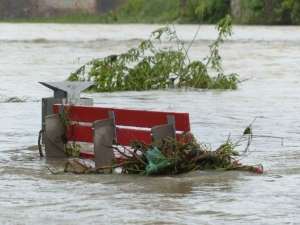The hope of an accession as quick as possible by Romania to the Eurozone was dealt a heavy blow precisely on the National Day.
A study posted on the ECB website, called "Real convergence in the Eurozone: a long term perspective", shows that the sole currency has not served as a catalyst for reducing inequality at all, but has in fact been a factor of increasing divergence between the economies of the member states (author's note: Paper Series no. 203, Real convergence in the euro area: a long-term perspective, with Juan Luis Diaz del Hoyo, Ettore Dorrucci, Frigyes Ferdinand Heinz and Sona Muzikarova as authors).
Unlike other similar analyses with a similar topic, the authors study the process of convergence over the long term, based on series of macroeconomic data collected since the beginning of the 60s.
Their conclusions are worrisome not just for countries that need to enter the Eurozone, according to European treaties, but also for the stability of the Monetary Union.
"A number of countries in the Eurozone have begun facing the trap of non-convergence long before the creation of the Eurozone", the analysis by the ECB states, and "for countries in the Eurozone with convergence problems, it is of critical importance to improve their economic structures, by improving the relevant institutions and the governance".
Real convergence is defined as "the process which leads to long-term growth of the GDP per capita in countries with low incomes towards the level of countries with high incomes" and depends on a number of factors such as capital, labor, total productivity, as well as the quality of institutions or governance standards.
These aspects have been widely presented in the EU-COFILE seminar, recently organized in Sinaia by the NBR, the Romanian Banking Association (ARB) and Alpha Bank.
Florin Georgescu, first-deputy governor of the NBR, stressed the importance of capital, but unfortunately supplied data which shows that "in spite of the advance of the companies' capital resources (in absolute numbers), the capitalization degree of Romanian companies has degraded over the last 20 years", while "capital is the engine of real convergence and economic development of the country".
Moreover, a large number of companies are seeing negative own capital, "and the funding of the activity is done particularly through borrowing from shareholders".
Why has it come to this? Because the total cost of capital, calculated as an average between the cost of capital brought in by shareholders and the cost of borrowing, has been and is deeply distorted by monetary policy.
And that is not all. The fiscal policy and legislative instability are direct "aggressions", which are particularly harmful to SMEs, which anywhere else in Europe represent the main "engine" of the economy.
Negative capital and the loans granted by the owners to their businesses are merely a rational response to the aggression and the uncertainties that it generates.
A piece of news that recently appeared in the financial press underlines a fundamental problem of our economy, both in terms of capital and of workforce. The association of Independent Car Repairs Companies (ASSAI) sent a letter to the Chinese Embassy, by which they were asking for support for recruiting Chinese laborers, Profit.ro writes, according to the acute staff crisis.
Experienced employees ask for net wages of 1,000 - 1,400 Euros, and the president of the ASSAI says that "it is difficult to guarantee such a salary to an employee each month, given the legislative and fiscal unpredictability, as they are presented by the Romanian business sector", because "in the relationship between the employee and the employer, the supply and demand mechanisms fail, because there are imbalances between the employees' demands and the employers' means". So the problem is not the wage itself, but guaranteeing it over the long ter.
Under these circumstances, how can we talk about real convergence based on increasing the productivity of production factors? According to the definition, total productivity of production factors (TFP) represents the part of the total production that can not be explained only through the quantity of inputs in the production process, and its level is determined by the effectiveness and intensity of use of the production factors.
The major differences over the institutional framework have heavily influenced the evolution of the determining factors of the real convergence, and the ECB economists have noticed that there is a very deep "chasm" between the initial expectations and reality.
Starting from the initial revenue level of 1999, the ECB study shows that the difference between the real growth and the expected one was very high in 2015, especially for countries on the Southern edge of the Eurozone.
In Greece's case, the real growth was about 23 percentage points below the expected one, and for the group of countries on the Southern edge the negative difference is about 12 percentage points. The surprise is represented by the particular performance of the Baltic Countries and Slovakia, countries which have joined the Eurozone after 2002.
According to the classification from the analysis of the ECB economists, countries in the core of the Eurozone are Belgium, Germany, France, Holland, Austria and Finland, and the group of countries on the Southern edge includes Spain, Greece, Italy and Portugal.
The discrepancy between reality and expectations surprises even more when we note that since the beginning of the Eurozone, diverse economies such as Germany, Holland, Greece, Spain, France or Italy have seen a common growth trend, as shown by the evolution of the real GDP.
Something "broke" after the entering in the Eurozone. Italy's "performance" is explained by ECB economists through the quality of its institutions and the structural problems of the economy. In their opinion, the effects of the global financial crisis only partially explain the evolution of the 4th economy of the Eurozone.
Even though France is included in the core of the Eurozone, the evolution of its economy was closer to that of the Southern edge of the Eurozone. Patrick Artus, chief-economist of investment bank Natixis, recently wrote that there are no signals concerning the stopping of the process of deterioration of the economic situation of France and Italy, a process which for France began 20 years ago.
The measures proposed by Artus, such as the gradual cutting of wages and massive corporate tax cuts, are impossible to apply politically, and the conclusion of the French economist is that the deindustrialization process will continue in the two countries.
The analysis of the ECB also features some explanations concerning the evolution of the countries on the Southern Edge of the Eurozone, which are particularly significant for the Romanian economy as well.
The authors write that after the move to the common monetary policy, up until 2007, countries such as Greece or Greece or Spain only saw a "temporary convergence", but the growth over that period proved unsustainable, as it was the result of the accumulation of internal and foreign imbalances and of the flawed allocation of resources.
"The accelerated growth of internal demand supported by lending led to the overestimation of the potential for economic growth", the study of the ECB further shows. It is superfluous to point out that the same phenomenon has been visible in Romania in the period prior to the crisis. It is still visible now.
"The risks generated by the accelerated increase in spending and of the degree of indebtedness have not been treated adequately by the authorities", the ECB economists further write. The situation once again fits Romania to a tee. Moreover, "the macroprudential instruments for limiting the excessive indebtedness were not used or were too weak to temper the expansion of lending in those economies". What else is there to say?
Another phenomenon that is particularly worrisome noted in the analysis of the ECB concerns the ineffectiveness of the foreign capital inflows when it comes to "stimulating sustainable convergence". After writing that "capital inflows in the period prior to the crisis were directed towards the acquisition of debt instruments or were poured into the economy through the banking system", the authors reach the conclusion that "they did not result in a process of productivity convergence". The reason of course being the directing of most of the capital inflows to the real estate market.
This type of "imbalanced growth" unfortunately has been a fundamental characteristic of the Romanian economy for more than ten years and shows us that we would need several years of preparation before joining the Eurozone.
NBR officials present in the EU-COFILE seminar tried to be optimistic concerning the chances of accession and were absolutely "exuberant" when it comes to the accession timeline. The optimistic scenario, namely the accession in 2023, seems a fantasy to say the least, after the publication of the analysis of the ECB, and the maintenance of the current political class "guarantees" that the "mirage" of the Eurozone is very far in the future. If we accession is "forced" now or in the coming five years, Romania will at best be sentenced to stagnation.
In the annual speech about the state of the European Union, European Commission president, Jean-Claude Juncker, launched the idea of the quick entry of all the member countries into the European Union as well.
German professor Hans-Werner Sinn, former president of the Ifo institute and the author of the book "the Euro trap", compares Juncker to the head of a group of travelers who are heading towards a castle on the horizon, but the path they have taken leads somewhere else, and the only advice of the leader is that they should pick up the pace.
In the article "The map of Jean-Claude Juncker for the European disaster", published on the Project Syndicate website, Sinn says that "the single currency led to the appearance of a lending bubble in Southern Europe, and when the bubble burst, the competitiveness of the region was destroyed".
The same path will be followed by the potential new members. "Juncker's plan, to speed up the expansion of the Eurozone, threatens to recreate the chaos of the last decade, started by the bubble in Southern Europe and which climaxed with the sovereign debt crisis in Greece", is the conclusion of the German professor.
Without a powerful domestic capital base and a legislative framework favorable to its flexible allocation between industrial sectors, in order to allow a quicker reaction to the market demands, increasing the population's income will be nothing but an illusive ideal and we will be permanently sentenced to a status of economic colony.
The structural reforms, when looked at as the final objective and not a permanent process in which the market plays the main role, will not be enough for Romania, just like they aren't enough for the Eurozone.
Also needed is a permissive and stable fiscal and regulatory framework, which would allow the development of a competitive and flexible private sector.
Unless the path for structural reforms isn't opened here and now, which would provide the environment needed for accumulation and growth of domestic capital, at least by giving it equal treatment to the foreign one, then we won't stand a chance after the joining of the Eurozone, a project which is politically promoted and achieved based on ignoring economic laws and the historical experience.
















































